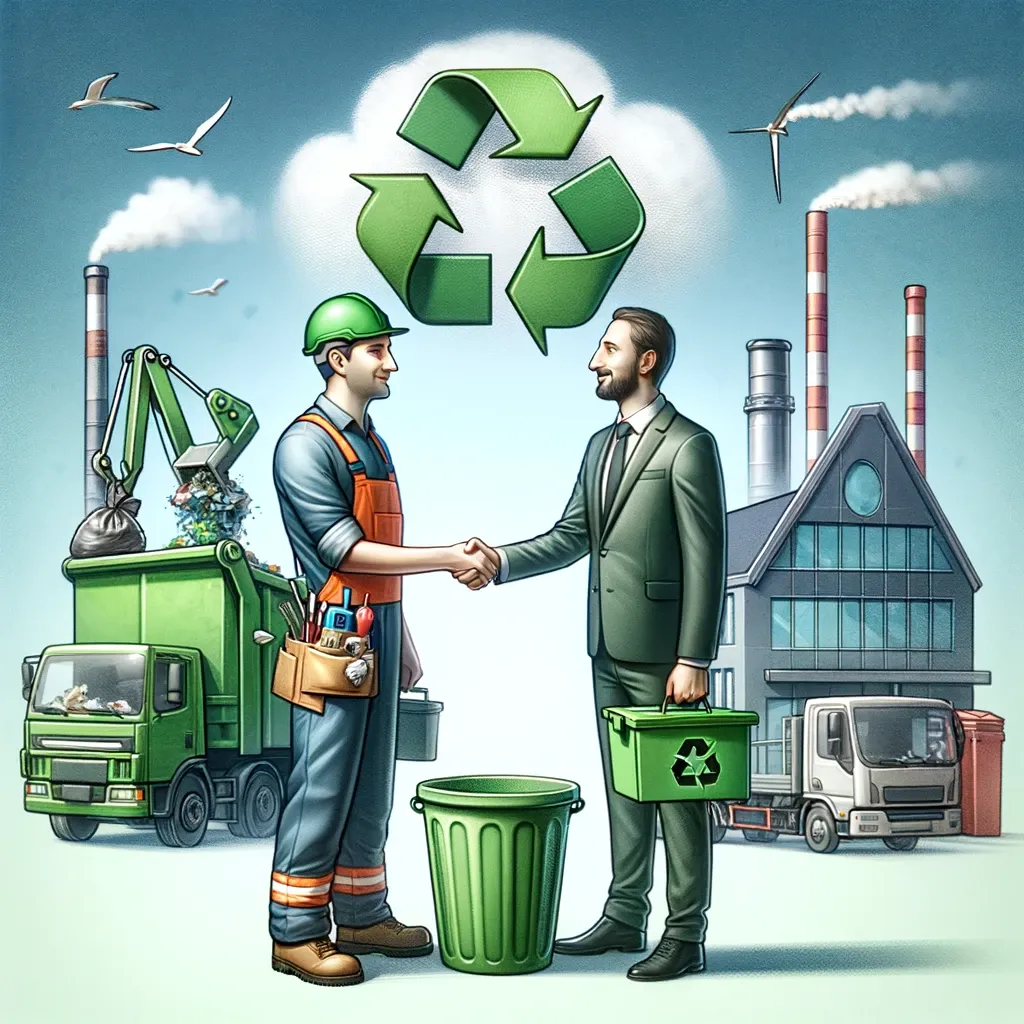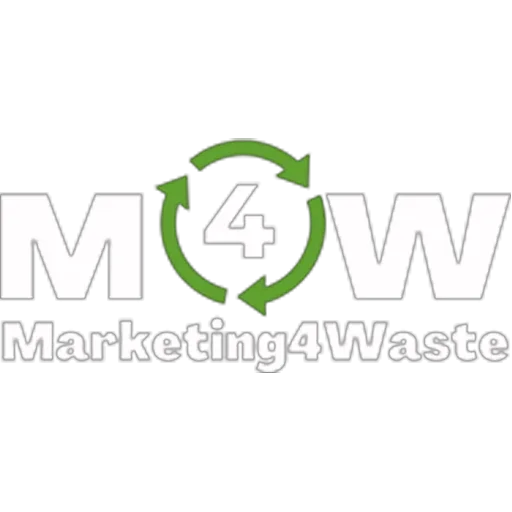Increase the Revenues of Your Waste Company With the Tips Shared in Our Blog Articles

Unlocking Growth: Profit Partnerships for Small Waste Companies
Small Waste Company Owner are you feeling the weight of stagnant turnover and the relentless pressure of industry competition?
In the bustling realm of waste management, it's easy to feel overshadowed by larger counterparts. But there's a transformative strategy that might just be your game-changer: profit partnerships with recycling facilities.
This is more than a business trend; it's a pivotal move to revitalize your company.
The Current Landscape of Waste Management
In today's world, waste management is not just about disposal; it's about sustainability and innovation. As small business owners, you face unique challenges: limited resources, increasing environmental regulations, and a competitive market that doesn't always favor the underdog. Yet, your role is crucial. You're the local heroes who keep our neighborhoods clean and our environment safe. But how do you turn this essential service into a thriving, profitable business?
The Power of Partnerships
The answer lies in collaboration. By partnering with recycling facilities, you can turn your challenges into opportunities. These partnerships aren't just about getting by; they're about strategic growth. They offer a chance to expand your service offerings, tap into new revenue streams, and make a significant environmental impact.
Pros of Partnerships
Let’s delve into the benefits:
1. Increased Recycling Capabilities: By aligning with recycling facilities, you can handle a broader range of recyclables, increasing efficiency and customer satisfaction.
2. Cost Efficiency: Share resources and technology with your recycling partner to reduce operational costs.
3. Expanded Market Reach: Offer comprehensive waste solutions that attract a broader customer base, from environmentally conscious households to green-minded businesses.
4. Enhanced Environmental Impact: Your partnership will contribute significantly to reducing landfill usage and promoting sustainability, a strong selling point in today's market.
5. Diversification and Innovation: Collaborate on new recycling technologies and methodologies, positioning your company as an innovative leader in waste management.
6. Compliance Ease: Navigating regulatory landscapes is easier with a partner who shares the burden and knowledge.
Addressing the Cons with Direct Response Marketing
Every opportunity comes with its challenges, but with direct response marketing, these can be transformed into advantages:
1. High Initial Investment: Use marketing to showcase the long-term financial and environmental ROI of your partnership, attracting investors and grants.
2. Quality Control: Promote your stringent quality standards in your marketing campaigns, turning this potential con into a testament to your commitment to excellence.
3. Market Fluctuations: Agile marketing strategies can help you adapt to market trends, turning fluctuations into opportunities.
4. Logistical Complexities: Use success stories in your marketing to highlight how your partnership has overcome logistical hurdles.
5. Regulatory Compliance: Market your compliance record as a testament to your reliability and professionalism.
6. Contamination Risks: Educate your customers about proper recycling practices through your marketing campaigns, improving the quality of recyclables you receive.
7. Limited Material Scope: Identify and target niche markets for less commonly recycled materials, turning a limited scope into a specialized service.
How To Transform These Cons in Pros?
Direct Response Marketing Is Your Magic Wand
As a small waste company owner, transforming the inherent challenges of your partnership with a recycling facility into opportunities is crucial. Direct response marketing, both online and offline, can be a pivotal tool in this transformation. Let's explore a step-by-step process to achieve this:
Step 1: Identifying Your Audience and Their Needs
- Online: Use digital tools to analyze your audience, including social media insights and website analytics.
- Offline: Conduct surveys or focus groups within your community to understand the needs and preferences of your customers.
Step 2: Crafting a Compelling Message
- High Initial Investment:
- Online: Develop a digital campaign highlighting the long-term benefits and ROI of your recycling initiatives. Use infographics, video testimonials, and ROI calculators.
- Offline: Host community seminars or workshops demonstrating the financial and environmental impact of your services.
- Quality Control Challenges:
- Online: Share behind-the-scenes content on your social media and website, showing your commitment to quality.
- Offline: Distribute newsletters or brochures detailing your quality control processes and standards.
Step 3: Choosing the Right Channels
- Market Fluctuations:
- Online: Use email marketing and social media to quickly adapt your messaging to market changes.
- Offline: Leverage local newspapers or community bulletin boards for timely updates and offers.
- Logistical Complexities:
- Online: Create a series of blog posts or an online FAQ section addressing how you efficiently manage logistics.
- Offline: Host local Q&A sessions or information booths at community events to discuss logistical efficiencies.
Step 4: Engaging with Your Audience
- Regulatory Compliance:
- Online: Publish regular updates on your compliance and industry standards through newsletters and social media.
- Offline: Organize community meetings where you discuss industry regulations and your compliance strategies.
- Contamination Risks:
- Online: Develop an interactive campaign educating customers about proper recycling practices.
- Offline: Conduct local workshops or distribute informative pamphlets on reducing contamination.
Step 5: Measuring and Adapting
- Limited Material Scope:
- Online: Use online surveys and feedback tools to understand market needs for niche recycling services.
- Offline: Attend local business fairs or community events to gauge interest in specialized recycling services.
- General:
- Both Online and Offline: Regularly review the performance of your marketing campaigns. Use customer feedback, conversion rates, and engagement metrics to refine your strategies.
Step 6: Building Long-Term Relationships
- Develop a loyalty program or a referral system that rewards customers for sustainable practices.
- Regularly update your audience with the positive impact of their recycling efforts, fostering a sense of community and purpose.
By following these steps, you can effectively use direct response marketing to transform the challenges of your partnership into growth opportunities.
Remember, your approach is to be adaptable, responsive, and customer-focused.
Your journey from facing challenges to celebrating successes is just a well-planned marketing strategy away!
And we have the strategy for you!
Do you want to know more?
Text Us Strategy at +1 (727) 307-2695
And we’ll call you back to schedule a free marketing strategy session.
Be Bold!
Sam


© 2025 Marketing4waste - All Rights Reserved,
Marketing4Waste is a brand of MiM MarketingInterimManagers LLC
+1 801 804 5730

